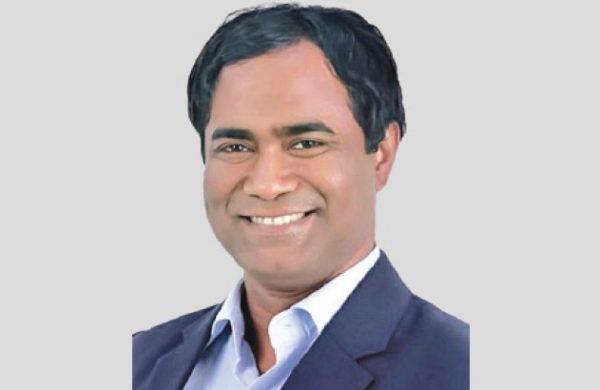Reformation: Priority Areas
- Update Time : Wednesday, August 14, 2024

–Dr. Md. Monirul Islam–
For the sacrifices of hundreds of martyrs, thousands of injured individuals, and an unverified number of arrests, and with great expectations, an interim government led by Professor Dr. Younus has assumed responsibilities. The ultimate vision is a country free from discrimination. In order to make a significant impact, this interim government requires a considerable amount of time, despite the fact that some individuals are pushing for elections to be held within a few months. However, it is crucial to remember that it was through the efforts of students and the general population that this progress was made. As a result, their demands should take precedence. Their desire for change is not rooted in self-interest but rather in the desire to improve the entire country. As such, it is necessary to grant this interim government ample time to implement reforms across various sectors. Let us set aside our personal and political ambitions and devote ourselves to creating a prosperous nation.
Before undertaking any reformation, restoring law and order in the country is crucial. The top priority should be to reinstate internal stability. Firstly, it is essential to address and stop the attacks, if any, on religious minorities and tribal communities, along with the rampant vandalism in various locations. If this is not done, our achievements will be tarnished and our path forward will become difficult. In recent times, numerous social media platforms have been disseminating a mix of truth and falsehood, leading to confusion regarding attacks on minorities and other forms of aggression. It is imperative to put an end to all forms of propaganda in order to foster awareness.
The first area that demands reform is the education sector. It is imperative to eliminate/reduce politically aligned activities in educational institutions in order to foster a healthy learning environment. It is not necessary for everyone to engage in nationally aligned politics; it can be replaced and strengthened by internal student unions such as DUCSU, SUKSU, and RUCSU etc. Teachers should focus on teaching more, and students should focus on learning. However, in our country, both teachers and students are engaging in politics more than fulfilling their duties. One of my students once remarked, “If we don’t get involved in politics, bad people will control it.” While there may be some truth to this statement, it is also making it difficult for good individuals to enter the political system.
Moreover, educational institutions should not be treated as political entities. Additionally, immediate changes should be made to the current primary and secondary curriculum, which is not relevant to our culture and ignores the opinions of teachers and guardians. This curriculum is only making our young learners lazy. Having lived and studied in both South Korea and the USA, I have observed that South Korean education emphasises hard work, stress management, and innovation in the early stages, while the USA emphasises creativity and innovation driven by individual motivation. Consequently, our early education curriculum should concentrate on fostering a hardworking mindset and ethical conduct.
The second reformation aims to minimise corruption, which is influenced by a lack of patriotism in our society. What is most concerning is that corruption has become accepted as a way of life in Bangladesh. Political parties believe it is acceptable for their leaders to accumulate wealth through corrupt means, considering it a deserved reward for their loyalty to the party. Bribery and commission taking and giving are common practices, with no regard for the harm they cause to the country. Corruption is not solely driven by monetary or economic motives, but rather, it is a social process deeply rooted in our thinking. Consequently, strong policies are needed to curb corruption, and even student movements can serve as watchdogs.
In recent years, our economy, particularly the banking sector, has performed poorly and is on the verge of collapse. According to the US-based research organisation, Global Financial Integrity (GFI), an estimated $149.20 billion has been illegally siphoned out of the country over the one and half decades, leaving Bangladesh with usable net reserves of less than $16 billion. We must express gratitude to our export sector, particularly the RMG industry, and the remittance inflow from our hardworking citizens abroad. These two sectors deserve more attention in our current situation. The interim government and other stakeholders should actively promote and generate interest to encourage more remittance inflows now. Additionally, addressing the pressing challenge of job creation is crucial, and Dr. Younus possesses extensive expertise in this area.
Let us take South Korea as an example from which we can learn. Following the Korean War (1950-1953), South Korea was one of the poorest countries in the world, even lagging behind Bangladesh until 1964. Many Koreans suffered from famine. However, Korea was able to achieve dramatic development because its people wholeheartedly worked for the common good, driven by patriotism, a strong work ethic, and ethical behaviour, which were instilled through education.
After the Korean War, President Park took over the government with the goal of reforming Korea. He sent numerous mineworkers and nurses to Germany, who would then send money back to Korea to help build a factory. In 1964, President Park visited Germany to borrow money. Hundreds of Koreans in Germany gathered at the airport to welcome him, crying as they saw the president. Their only question to him was, “President, when will we be well off?” Moved by their sincerity, President Park wept with them and promised that Korea would prosper if everyone worked hard for the country.
This left a strong impression on the President of Germany, who decided to lend money to Korea. Therefore, President Park built numerous factories in Korea and consistently encouraged Koreans to have a deep love for their country. As a result, many Korean scientists and engineers working in the USA returned to Korea with the goal of contributing to their nation’s development and prosperity. Despite receiving low salaries, they dedicated themselves wholeheartedly to the betterment of Korea, fuelled by the hope that their children would grow up in a prosperous and comfortable country. Today, South Korea stands as the sixth-largest economy in the world, boasting a multitude of global companies and industries like Samsung, LG, Hyundai, KIA, POSCO, and SK Hynix and more. Let us dare to dream and work diligently towards building a new Bangladesh.
______________________________________________
The writer is Professor, Department of Business Administration, SUST, Sylhet. He is a State Department fellow (USA), and did his PhD. from South Korea



















